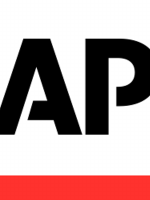TOPEKA, Kan. (AP) — A new Kansas law that increases spending on its public schools still falls up to $1.5 billion short of providing adequate funding under the state constitution, attorneys for four local school districts argued Monday in a filing with the state's highest court.
Attorneys Alan Rupe and John Robb asked the Kansas Supreme Court to declare the school funding system "void" — effectively shutting down schools statewide — unless the Republican-controlled Legislature approves another, even larger spending increase by the end of June. The new law phases in a $548 million increase in education funding over five years, an amount Attorney General Derek Schmidt described as "massive" in his own filing with the high court. Schmidt, also a Republican, argued that the law complies with a Supreme Court mandate to boost spending on public schools.
The high court ruled in October that Kansas' current funding of more than $4 billion a year isn't sufficient for lawmakers to fulfill a duty under the state constitution to provide a suitable education to every child, even with increases approved last year. The four districts sued the state in 2010.
Rupe and Robb argued in their filing that the phased-in increase approved by legislators would barely keep up with inflation after the first year. They also pointed to studies about education funding needs — including one commissioned by the Legislature this year that improving schools might cost nearly $2.1 billion more a year, depending on how ambitious the state was. "The demands placed on the Kansas Legislature by the people of Kansas cannot be ignored simply because those demands are challenging," Rupe and Robb said in their filing.
The court has a hearing scheduled for May 22 on the new law and has promised to issue a decision by June 30. Rupe and Robb filed more than 900 pages of documents to buttress their arguments against the law, while Schmidt filed almost 1,300 pages of documents.
Lawmakers ended their annual session Friday, and Republican Governor Jeff Colyer might have to call them into special session if the court strikes down part or all of the new school funding law. Schmidt argued in his filing that the new law provides "sustainable, long-term" funding for schools. Also, by phasing in their increase, lawmakers could avoid boosting taxes this year after raising income taxes last year to help balance the state budget.
Told of the arguments by Rupe and Robb, Kansas House Minority Leader Don Hineman called their position "frankly ridiculous" and said trying to achieve it would result in a political upheaval.
"They must occupy a different universe than I do," said Hineman, a moderate Republican from western Kansas.
Kansas has been in and out of lawsuits over education funding for several decades, and the latest one was filed by districts in Wichita; Kansas City, Kansas; Hutchinson in south-central Kansas, and Dodge City, in western Kansas. They argued initially that not only was the state's funding inadequate, it was distributed unfairly, hurting poor and minority students.
The court has ruled multiple times in the districts' favor since 2014, forcing lawmakers to increase state aid to poor districts before ruling last year that Kansas' overall funding is not adequate.
This story was written by John Hanna of the Associated Press. Follow John Hanna on Twitter.


